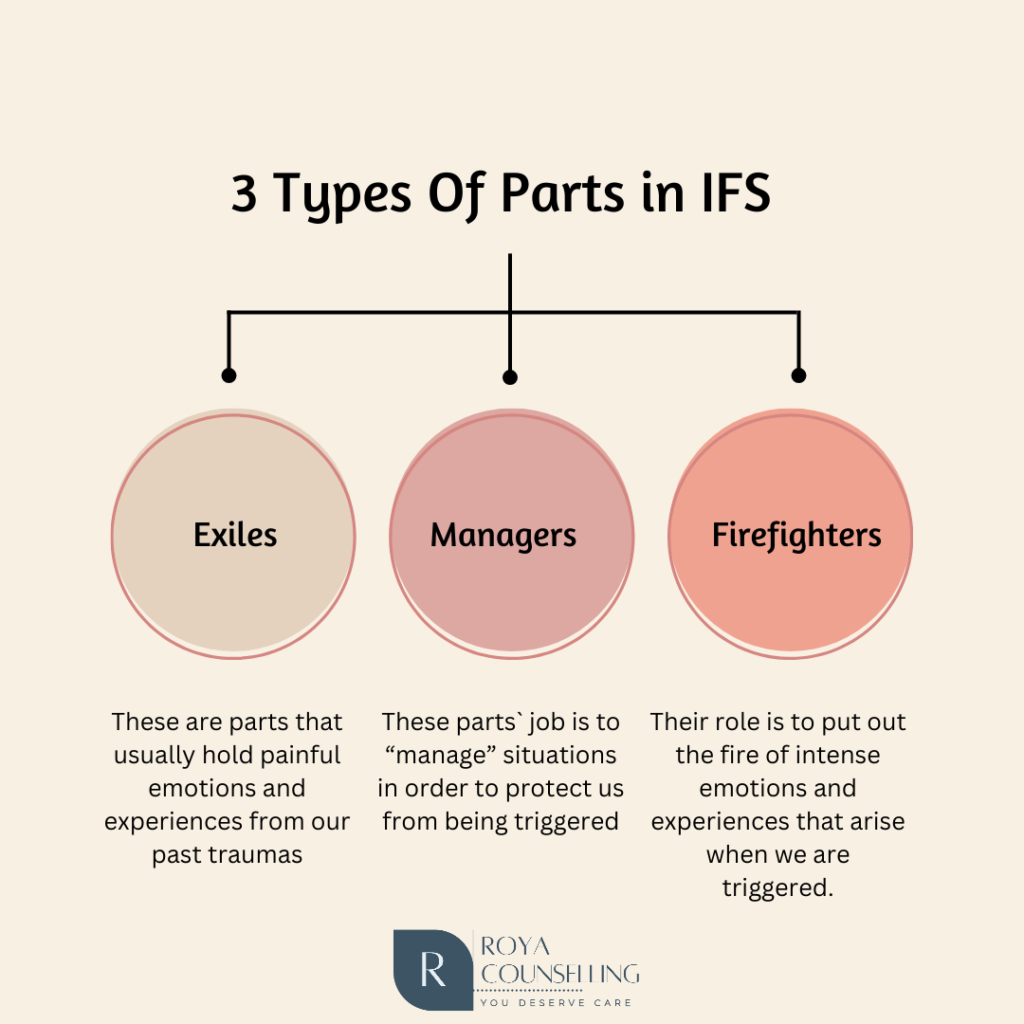Internal Family Systems Therapy, commonly called IFS therapy, is a fascinating approach to viewing and working with our internal world. Many clients report that the ideas of IFS therapy resonate with their experience and many clinicians find the approach helpful in having a framework to work with different client issues.
Three Main Principles of Internal Family Systems (IFS) Therapy:
The Internal Family Systems Therapy, commonly called IFS therapy, is a therapy model created by Richard Schwartz and is now used not only in individual therapy, but also couples and family therapy. The approach has gained popularity since professionals recognize its effectiveness in treating a range of psychological issues, including trauma, anxiety, depression, and relationship difficulties.
Internal Family Systems therapy is a comprehensive approach with many nuances . To give you a general idea of the approach, below we will discuss the three main principles that are at the core of IFS therapy.
- An “inner family”: One of the principles of IFS therapy is that we all have an inner family inside us. This approach proposes that our psyche is made of different parts, each with its unique history, beliefs, behaviours and roles. These parts often play specific roles in shaping an individual’s responses to life situations.
- “No Bad Parts”: IFS therapy views all of our different parts, even the ones that we are not very proud of, such as an overeating part, as inherently good. In this approach, we recognized that every internal part, regardless of its role or function, carries positive intentions and serves a protective purpose. IFS encourages individuals to approach each internal part with curiosity, openness, and understanding, recognizing that even parts that may seem challenging or disruptive have underlying positive intentions
- Self-Leadership: Another important principle of IFS is the importance of self-leadership. According to IFS, we all have an authentic, central and compassionate core inside us, referred to as the Self. According to IFS, the Self possesses qualities such as wisdom, clarity, and kindness. Self-leadership involves the capacity to access and embody these qualities to guide the internal family system towards harmony and healing

When is Internal Family System THERAPY Used?
Internal Family Systems therapy is used for a variety of mental health issues such as depression, anxiety, trauma, anger management issues and eating disorders. Internal Family System has also been used in couples therapy to help couples improve their relationship and gain a better understanding of their partner`s inner world.
What To Expect During a Session with an Internal FAMILY SYSTEMS (IFS) therapist?
In your initial Internal Family Systems Therapy session, your therapist will typically conducts an initial assessment. Background questions will be asked to gain insight into your history, current struggles and your therapeutic goals.
In subsequent sessions, the therapist and the client work together to identify the different parts of the client`s inner world, understand these parts in depth and help the client harmonize and integrate these inner parts. The ultimate goal of Internal Family Systems therapy is called “self-leadership”. Self-leadership refers to the client`s ability to see the bigger picture in different situations and have a “bird`s eye” perspective of life events instead of a narrow perspective. In order to not get “carried away” by strong emotions or impulses associated with our inner parts, we can learn to observe our inner world or our “inner family” with calmness, curiosity, compassion, and clarity.

What Are the Three Main Parts According to INTERNAL FAMILY SYSTEMS Therapy?
We all have an infinite number of parts within us, each with their own roles and stories and needs. Internal Family Systems Therapy ( IFS) has categorized the parts within us into three categories
- There are parts whose primary role is to manage intense emotions and experiences that arise when we are triggered. These parts are called the “firefighter” parts in IFS therapy. An example of this might look like being triggered after an intense argument with one` partner and using a behaviour like substance use to put of the “fire” of intense emotions.
- We also have manager parts whose job is to “manage” situations in order to protect us from being triggered. An example might be a part that avoids social situations to avoid triggering social anxiety. These parts are called “managers” and their role is to protect us from experiencing painful emotions.
- The third group of parts are called “exiles”. These are parts that usually hold painful emotions and experiences from our past traumas. An example might be a part that experiences deep body shame due to being bullied in school for being overweight. Exiles are parts of us that our psyche “exiles” in order for us to survive and cope, specially when we are younger. One of the main goals of IFS therapy is healing the exiled parts.

Are There Downsides to Internal family systems therapy?
Like any other form of therapy, IFS therapy might bring difficult emotions that we might have tried to exile and push away. Therapy usually requires us to face and discuss painful emotions and experiences before we can process our pain and heal. A trained IFS therapist will make sure that you approach these experiences in a manner that feels safe and helpful.
Are You Interested in Trying internal family systems therapy?
Becoming an IFS therapist requires formal training and we are proud that we have taken formal training in IFS therapy at Roya Counselling to make sure we can use this approach with out clients when it is appropriate.
If you are interested in IFS therapy, please book a free consultation through our website. This will give us a chance to discuss your specific needs and goals and discuss if IFS therapy can be helpful for you.
0 Comments